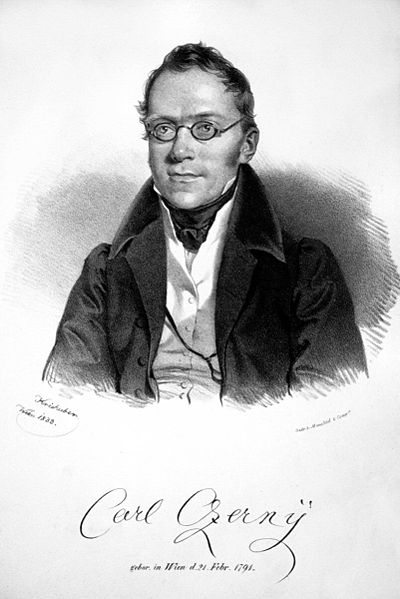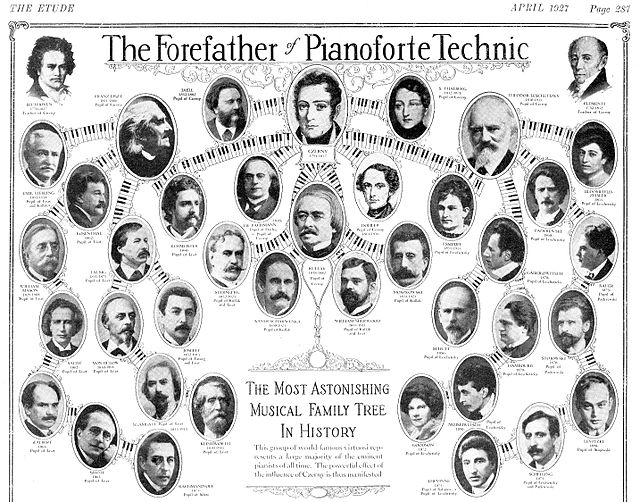An étude or study is an instrumental musical composition, usually short, designed to provide practice material for perfecting a particular musical skill. The tradition of writing études emerged in the early 19th century with the rapidly growing popularity of the piano. Of the vast number of études from that era some are still used as teaching material, and a few, by major composers such as Frédéric Chopin, Franz Liszt and Claude Debussy, achieved a place in today's concert repertory. Études written in the 20th century include those related to traditional ones and those that require wholly unorthodox technique.
Last bars of Franz Liszt's Transcendental Étude No. 2: one of the most difficult of Liszt's études, this is a study in passages for alternating and overlapping hands.
Carl Czerny was an Austrian composer, teacher, and pianist of Czech origin whose music spanned the late Classical and early Romantic eras. His vast musical production amounted to over a thousand works and his books of studies for the piano are still widely used in piano teaching. He was one of Ludwig van Beethoven's best-known pupils and would later on be one of the main teachers of Franz Liszt.
Carl Czerny, lithograph by Josef Kriehuber, 1833
Czerny introduces his pupil Franz Liszt to Beethoven. Drawing by Rudolf Lipus (1893–1961).
(1857–2007) 150th anniversary of Czerny's death, Central Cemetery, Vienna
"Czerny, the forefather of Pianoforte Technic", illustration from The Etude magazine, April 1927





